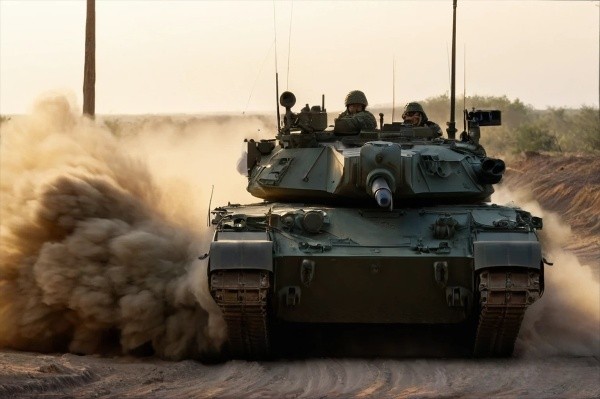Iran’s Plan to Strike Back Against the U.S.
Iran’s Military Preparations Following U.S. Attacks
Loading...

More weapons transfers approved as Israel bombs Gaza and prepares for anticipated retaliatory strikes by Iran and Hezbollah.
The United States has recently authorized a significant arms package worth $20 billion for Israel, which includes advanced fighter jets, tank munitions, and air-to-air missiles. This decision, announced by the State Department on Tuesday, comes at a time when Israeli military actions in Gaza have raised serious concerns regarding violations of international law and the humanitarian crisis unfolding in the region. The Biden administration's commitment to Israel's security remains steadfast, with officials emphasizing the importance of maintaining a strong defense capability for their ally in the Middle East.
Escalating Tensions and Anticipated Retaliation
The arms sale is particularly notable as it coincides with heightened tensions in the region, especially following the assassinations of key Hamas and Hezbollah leaders. These events have sparked fears of potential retaliatory strikes from Iran and Hezbollah, which could escalate into a broader regional conflict. President Joe Biden has expressed hope that a ceasefire agreement could mitigate the risk of retaliation, emphasizing the need for immediate action to end the violence in Gaza.
As the conflict continues, reports indicate that Israeli airstrikes have resulted in the deaths of nearly 40,000 Palestinians, predominantly women and children. The destruction of entire neighborhoods and the blockade of humanitarian aid have drawn widespread condemnation and calls for the US to reconsider its military support for Israel.
Criticism of US Military Aid
Critics of the Biden administration argue that the continued flow of arms to Israel makes the US complicit in the ongoing destruction in Gaza. They contend that the administration has failed to leverage its military support as a means to push for a ceasefire, which Israeli Prime Minister Benjamin Netanyahu has insisted will not happen until Hamas is neutralized. The US has faced increasing pressure from lawmakers and the public to halt military transfers, especially in light of the high civilian casualties resulting from Israeli airstrikes.
Despite these concerns, the US has continued to approve arms sales, including a recent shipment of 2,000-pound bombs that have been linked to mass casualties in densely populated areas of Gaza. This has raised questions about the adherence to US laws that require the suspension of military support to units accused of gross human rights violations.
Diplomatic Efforts and the Path Forward
In an effort to address the escalating situation, US Ambassador to the United Nations, Linda Thomas-Greenfield, stated that the US aims to "turn the temperature down" in the region. She highlighted the urgency of finalizing a ceasefire deal that includes the release of hostages in Gaza. The US is actively working to broker a ceasefire, which it views as essential to preventing further escalation and ensuring regional stability.
As the situation develops, the Biden administration faces the challenging task of balancing its long-standing support for Israel with the growing humanitarian crisis in Gaza. The outcome of these diplomatic efforts will be crucial in determining the future of US-Israel relations and the broader stability of the Middle East.
In conclusion, the recent approval of a $20 billion arms sale to Israel underscores the complexities of US foreign policy in the region, particularly in light of the ongoing conflict in Gaza. As calls for a ceasefire grow louder, the Biden administration must navigate the delicate balance between supporting an ally and addressing the humanitarian needs of the Palestinian people.
BMM - MBA
Iran’s Military Preparations Following U.S. Attacks
Troops remain in five strategic locations, raising fears of renewed tensions and long-term occupation.
Opposition forces have taken control of the capital after a significant offensive. Here is how it unravelled.
